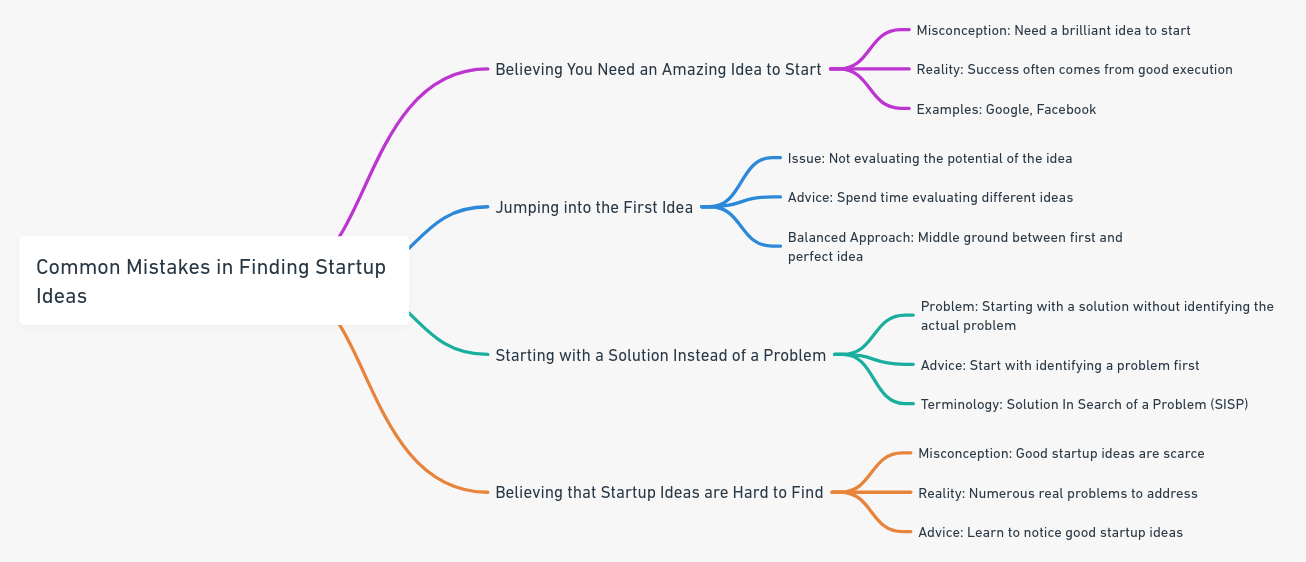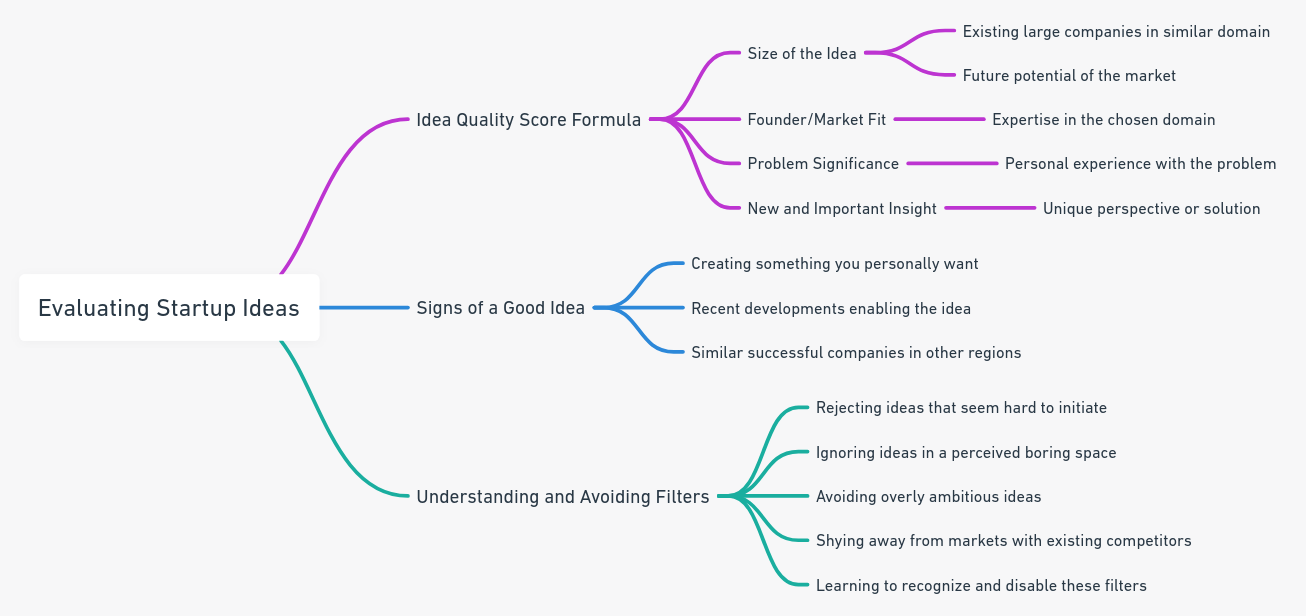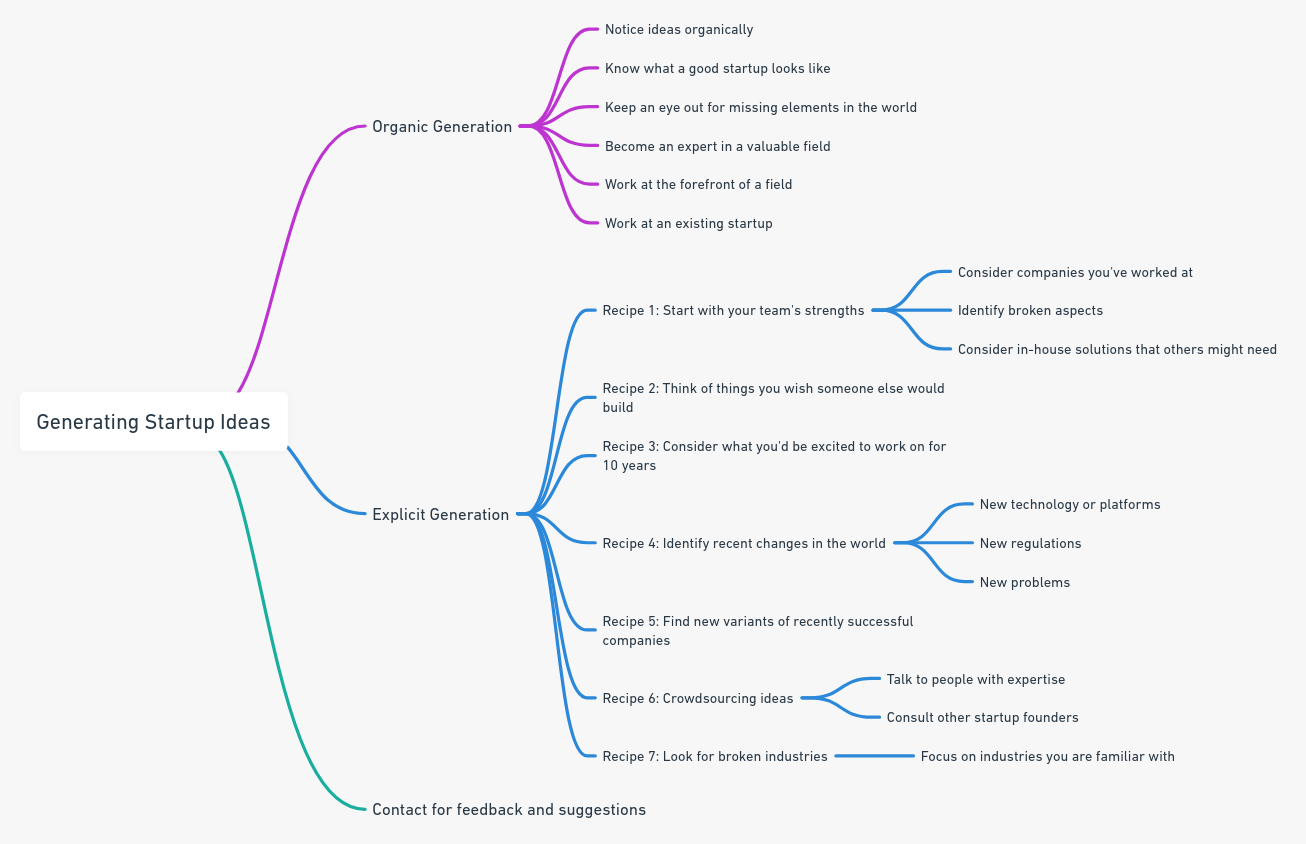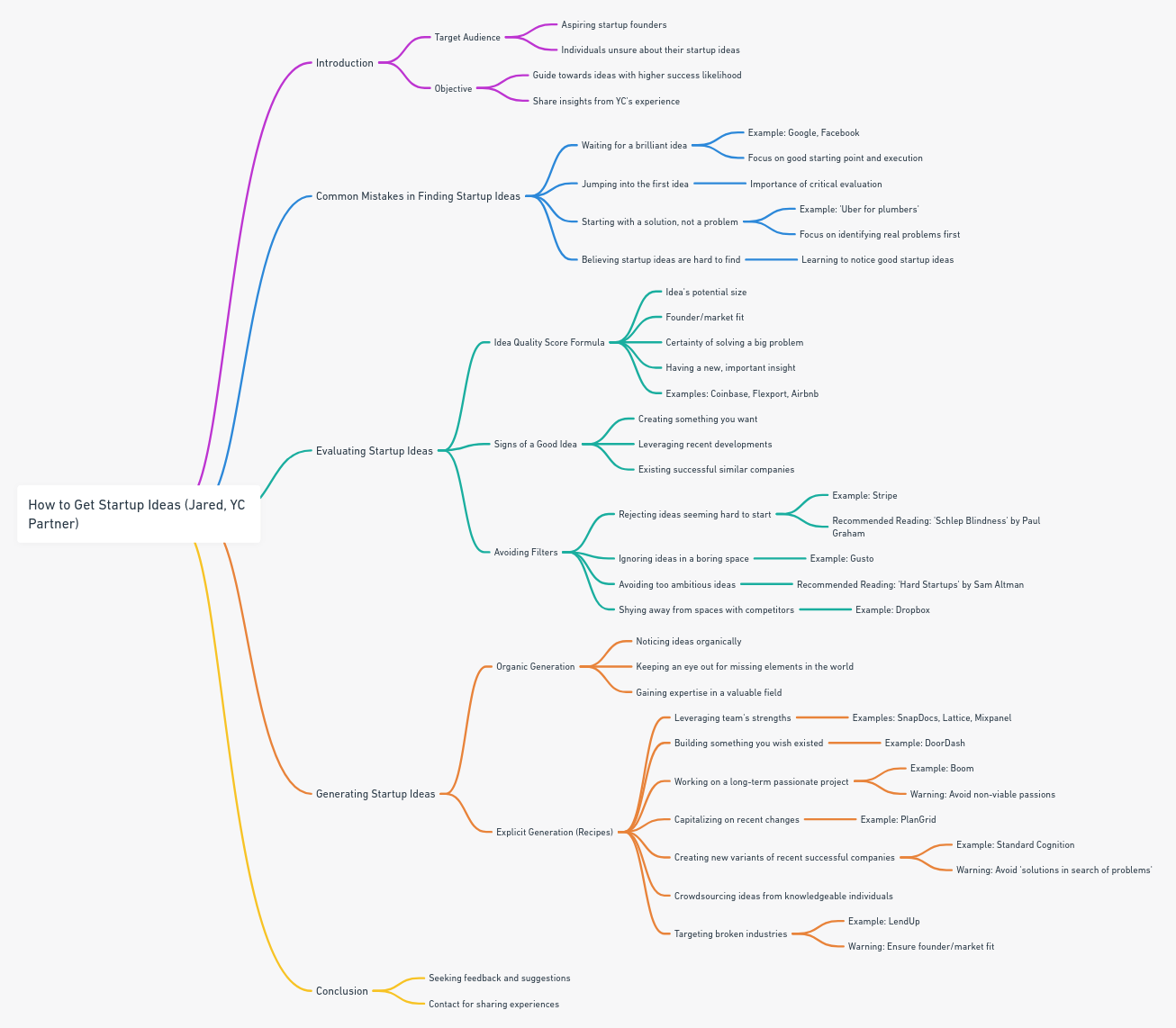Insights to guide aspiring solopreneurs
Fall in love with the problem, not the solution.
In this blog post, we venture into the vibrant world of startups with Jared, a seasoned partner at Y Combinator (YC). Jared shares his rich experience and insights to guide aspiring entrepreneurs on how to cultivate promising startup ideas. He unveils common pitfalls, evaluative criteria, and strategies for nurturing groundbreaking ventures, steering us towards a journey of innovation and success in the startup ecosystem.
Overview
- Target Audience: Individuals seeking inspiration for startup ideas or evaluating existing ones.
- Objective: To steer the audience towards methods and strategies with a higher success rate in the startup realm.
- Structure: The discussion unfolds in three sections: common mistakes, evaluating ideas, and recipes for generating startup ideas.
Common Mistakes in Ideating Startups
- Waiting for a Brilliant Idea: Beginning with a competent idea and excellent execution is more fruitful than waiting for a brilliant revelation.
- Jumping into the First Idea: A balanced approach, which involves thoughtful consideration rather than impulsiveness, leads to better startup ideas.
- Starting with a Solution, not a Problem: It’s more beneficial to identify real problems first and then craft solutions.
- Believing Ideas are Scarce: Real-world problems abound, offering numerous opportunities for new startups. Learning to notice these opportunities is key.

Evaluating Startup Ideas: A Formulaic Approach
- Idea Quality Score Formula: A method to evaluate the potential of your idea based on market potential, founder-market fit, problem significance, and unique insights.
- Positive Indicators: Signs of a promising idea include personal interest in the product, recent technological advancements, and similar successful ventures in different regions.
- Avoiding Filters: Learn to bypass subconscious filters that discard potential ideas, including dismissing ideas that seem too ambitious or are in a competitive space.

Recipes for Generating Startup Ideas
- Organic Idea Generation: Developing the ability to organically notice promising startup ideas is more fruitful than forced brainstorming.
- Explicit Generation Recipes: Jared shares seven recipes to explicitly generate startup ideas, ranking them from most to least effective. These recipes guide aspiring entrepreneurs to explore areas based on personal strengths, recent world changes, and broken industries, among others.

As we conclude our insightful journey with Jared, we are reminded that fostering a successful startup is a continuous learning process. Armed with the valuable guidance and principles shared in this post, we hope to inspire you to embark on your entrepreneurial journey with renewed clarity and purpose. We encourage you to utilize these insights as a compass, guiding you to explore and carve out your unique niche in the bustling startup landscape. Here’s to nurturing ideas that have the potential to revolutionize the industry, and to your exhilarating journey ahead in the world of startups.
